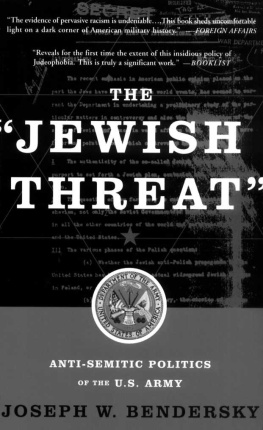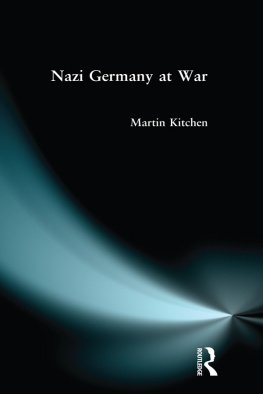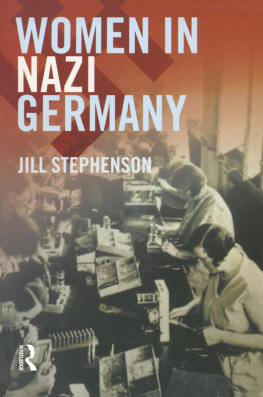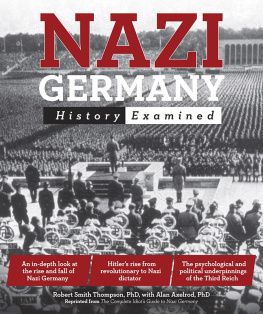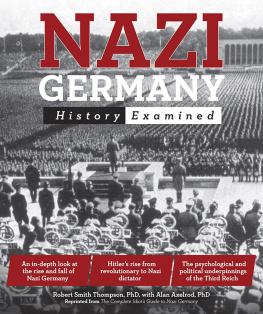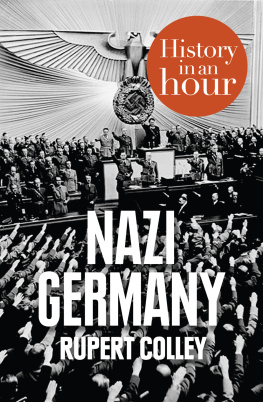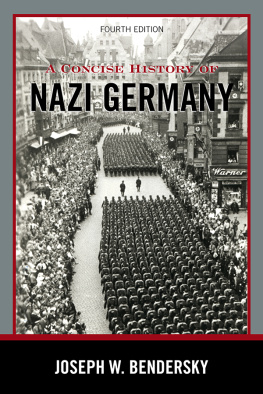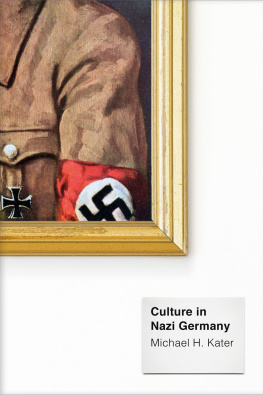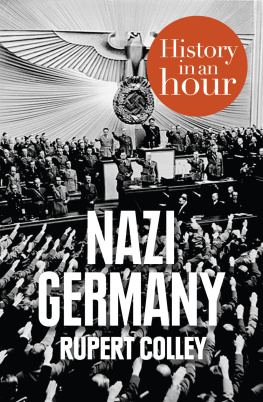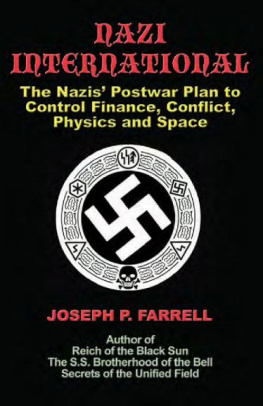Joseph W. Benderskyis professor of German history at Virginia Commonwealth University in Richmond, Virginia. His previous books are The Jewish Threat: Anti-Semitic Politics of the U.S. Army(National Jewish Book Award Finalist) and Carl Schmitt: Theorist for the Reich. His books have been translated into Chinese, Italian, and Japanese, and his articles have appeared in journals internationally. He is the recipient of National Endowment for the Humanities and Fulbright Fellowships, as well as distinguished lecturer and scholarship awards.
F rom the early years of the NSDAP to present public controversies, the mass media has remained an essential conduit in the struggle over nazism and its burdensome legacy. Communication technology was a significant instrument in the Nazi rise as a mass political party with an effective nationwide political machine. The radio, loudspeaker, quickly mass-produced propaganda posters, and illustrated publications contributed prominently to the Nazis meteoric electoral successes. Mass rallies and rapid recruitment of members and voters would have been impossible without these. The Nazis also relied on modern communication techniques to expand and sustain support throughout the triumphal years and decline of the Third Reich. And among the modern media they exploited, film held a distinguished place. From their hosting of film evenings during recruitment drives in rural areas and small towns to their manipulation of the entire cinema industry throughout their years in power, the Nazis insightfully grasped the political and social power of film.
In our contemporary world, where so much communication and learning comes through nonprint new media, film can also be a very useful medium for illuminating and understanding the Nazi historical experience. Certain images or portrayals of this period of history on the silver screen can convey messages and elicit poignant responses far more effectively than the printed word. This is true whether one is viewing documentary footage of celebratory Nazi rallies or of the murderous brutality of their concentration camps. Learning through film can be just as efficacious when viewing the feature films of that era that mass audiences watched, particularly those created by the Nazis as part of their extensive propaganda apparatus.
The films discussed below are intended to introduce the reader to some of the relevant, often most significant, feature and documentary films dealing with Nazi Germany. The selection is directed at the novice and not those well advanced in the field or specializing in film studies. As such, these films do not constitute an exhaustive or exclusive list, but rather are recommendations based upon widely acknowledged significance or proven effectiveness in enhancing historical understanding through classroom use. They have also been selected for their availability through rental, libraries, internet, or purchase. Most are of German origin; all are with English subtitles or dubbed in English. These films can be viewed while reading from the relevant sections of this book, or afterward as a means of continuing to grasp the essence and consequential nature of the Nazi phenomenon. They can be supplemented by the abundant films and documentaries on various history channels. However, since not all those featured on history channels are of equal quality or reliability, caution should be exercised during viewing. The more a viewer learns about Hitler and the Nazis from authoritative historical readings the better prepared he or she will be to discriminate the valuable from the potentially misleading film.
Weimar Republic
The hectic frenzy and modernist features of the big city symbolized to the Nazis much of what was detrimental in Weimar culture and society. These characteristics are vividly captured in the 1927 documentary Berlin: Symphony of a Great City. In fact, the entire film industry of postWorld War I Germany is especially important for appreciating the modernist trends in art that offended so many traditional-minded Germans. Many conservative middle-class Germans were quite susceptible to the Nazi condemnation of such films as Kulturbolschevismus(cultural Bolshevism), by which liberals and the left were subverting the values, morals, and psychological health of Germany. The expressionist 1919 film The Cabinet of Dr. Caligariis an excellent starting point, with Fritz Langs 1931 classic psychological thriller Mas a counterpart from late Weimar. The Nazis reproached the latter as an example of a society becoming so decadent it sympathized with a psychopathic child killer. In turn, Langs 1933 The Testament of Dr. Mabuse, some argue, foretold the insanity of the criminal regime the Nazis were about to establish. On the controversial Weimar issues of cabarets, prostitution, alluring sexuality, and homosexuality, see Pandoras Box(1928), Marlene Dietrichs debut as a sex symbol in The Blue Angel(1931), and Girls in Uniform


